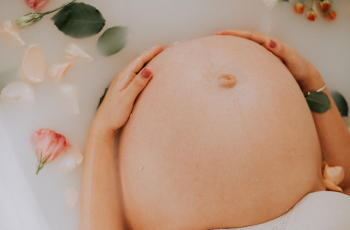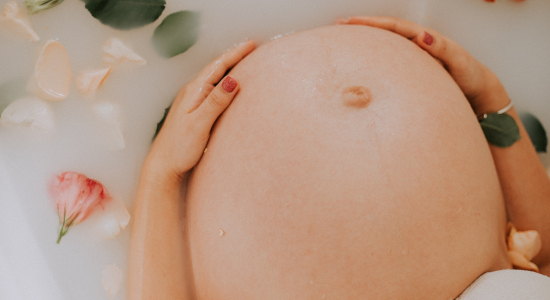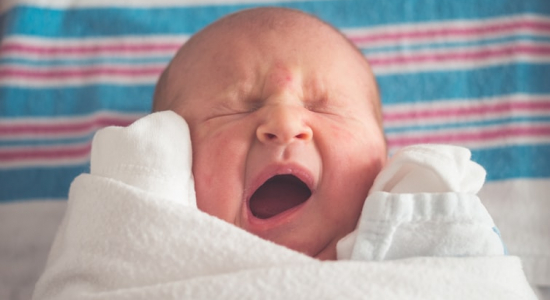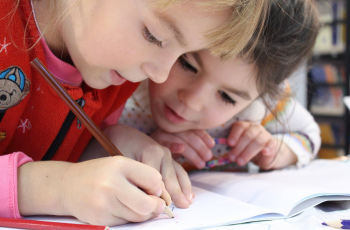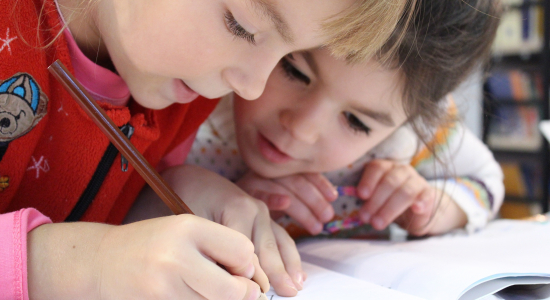
Michiel_D
15-07-2024 om 15:54
Alcohol gedronken op feest
Mijn zoon (16) ging naar een feest van een klasgenoot. Om 1 uur 's-nachts werd hij door de vader van de klasgenoot thuisgebracht. Hij was zo dronken dat hij niet meer op zijn benen kon staan. Volgens vader van de klasgenoot hadden ze in zijn achtertuin een drankspel gespeeld met bier en wijn die hij voor het feest gekocht had. Hij leek dat de normaalste zaak van de wereld te vinden, en vond dat mijn zoon zich meer had moeten inhouden, maar ik vind echt dat hij (naast mijn zoon die ik stevig gesproken heb) ook een verantwoordelijkheid heeft.
Nu even verder gevraagd en de meeste ouders lijken onbeperkt alcohol schenken aan 16 jarigen op zo'n feest niet een probleem te vinden en vooral de verantwoordelijkheid van de jongere zelf ('ik kan toch ook niet weten of iemand 18 is?').
Ik ervaar dat als problematisch, want ik wil absoluut niet dat zoonlief nog een keer zo thuiskomt, maar hem verbieden naar feesten van klasgenoten te gaan is ook niet echt een optie, wat kan ik doen?

Bakblik
27-07-2024 om 10:00
Kimdekim schreef op 27-07-2024 om 09:57:
[..]
Wat zijn recentere onderzoeken dan?
Ik ben nog zoekende naar heb hier ook de rommel op te ruimen van een feestje gisteren met 10 personen.
Leuk detail: 9 volwassenen (75 74 60 59 57 36 34 22 en 19 jaar oud) er is 1 biertje gedronken en van de fles witte wijn staat het staartje nog in de koelkast. Het was geweldig gezellig.

Kimdekim
27-07-2024 om 10:05
Bakblik schreef op 27-07-2024 om 10:00:
[..]
Ik ben nog zoekende naar heb hier ook de rommel op te ruimen van een feestje gisteren met 10 personen.
Leuk detail: 9 volwassenen (75 74 60 59 57 36 34 22 en 19 jaar oud) er is 1 biertje gedronken en van de fles witte wijn staat het staartje nog in de koelkast. Het was geweldig gezellig.
Hier waren gisteren 5 pubers (16,17,17,18,19) en er is 1 fles ranja doorheen gegaan. Het was vast gezellig want om 3.30 hoorde ik nog gasten in huis.

Auwereel
27-07-2024 om 10:09
Kimdekim schreef op 27-07-2024 om 09:57:
[..]
Wat zijn recentere onderzoeken dan met andere resultaten? Ik ben nogal diep in het internet gedoken en er is behalve dit onderzoek weinig onderzoek gedaan waar niet naar bingedrinken wordt gekeken.
( En in de artikel die juliie zelf citeren worden bronnen uit 2000 gebruikt, just saying)
Zoek je wel op Google Scholar?
https://onlinelibrary.wiley.com/doi/abs/10.1111/acer.14224
A series of multivariate logistic regressions, we estimated whether teenagers whose parents allowed them to drink alcohol (16% of parents said “yes”) faced an elevated likelihood of heavy alcohol use at age 14, controlling for a large host of likely child and parent confounders measured when children were age 11.
Overigens is het in de wetenschap gebruikelijk om voort te bouwen op bestaand onderzoek, iets uit 2000 is niet outdated ofzo.

Kimdekim
27-07-2024 om 10:16
Auwereel schreef op 27-07-2024 om 10:09:
[..]
Zoek je wel op Google Scholar?
https://onlinelibrary.wiley.com/doi/abs/10.1111/acer.14224
A series of multivariate logistic regressions, we estimated whether teenagers whose parents allowed them to drink alcohol (16% of parents said “yes”) faced an elevated likelihood of heavy alcohol use at age 14, controlling for a large host of likely child and parent confounders measured when children were age 11.
Overigens is het in de wetenschap gebruikelijk om voort te bouwen op bestaand onderzoek, iets uit 2000 is niet outdated ofzo.
En waarom die van 2009 dan wel?
En mijn vraag was om wetenschappelijke artikelen die aangeven dat gelegenheidsdrinken schadelijk is bij kinderen. En dan heb ik het over pubers van 16,17. Want in ga ervan uit dat niemand in zijn volle verstand kinderen van 11 laat drinken.

Ysenda
27-07-2024 om 10:16
Auwereel schreef op 27-07-2024 om 10:09:
[..]
Zoek je wel op Google Scholar?
https://onlinelibrary.wiley.com/doi/abs/10.1111/acer.14224
A series of multivariate logistic regressions, we estimated whether teenagers whose parents allowed them to drink alcohol (16% of parents said “yes”) faced an elevated likelihood of heavy alcohol use at age 14, controlling for a large host of likely child and parent confounders measured when children were age 11.
Overigens is het in de wetenschap gebruikelijk om voort te bouwen op bestaand onderzoek, iets uit 2000 is niet outdated ofzo.
En op een gegeven moment is er consensus en dan drogen de onderzoeken op en gaan ze verder op details of heel andere onderwerpen. Dan droogt de stroom resultaten ook op.

Kimdekim
27-07-2024 om 10:26
Trouwens laat maar zitten eigenijk. Iedereen heeft gelukkig de vrijheid om te kiezen voor de opvoeding die werkt voor zijn/ haar kind. Het maakt me niet uit dat van de 65% van ouders die drinken verbieden blijkbaar een onevenredig hoog percentage hier vertegenwoordigd wordt. Prima ik heb er geen oordeel over. Dat dat andersom wel is, dat kan ik mee leven. Dat in ieder onderwerp wat nadrukkelijk niet over alcohol gaat er vaak even een sneer naar mijn mening over alcoholgebruik moet worden geven vind ik overigens behoorlijk kinderachtig maar ook daar kan ik mee leven.

kaatjecato
27-07-2024 om 10:35
recente overzichtsstudie (2021) van de Goede et al zegt dit:
ABSTRACT
Young people, whose brains are still developing, might entail a greater vulnerability to the effects of alcohol consumption on brain function and development. A committee of experts of the Health Council of the Netherlands evaluated the state of scientific knowledge regarding the question whether alcohol negatively influences brain development in young people. A systematic literature search for prospective studies was performed in PubMed and PsychINFO, for longitudinal studies of adolescents or young adults ranging between 12 and 24 y of age at baseline, investigating the relation between alcohol use and outcome measures of brain structure and activity, cognitive functioning, educational achievement, or alcohol use disorder (AUD), with measures at baseline and follow-up of the outcome of interest. Data were extracted from original articles and study quality was assessed using the Newcastle-Ottawa Scale. A total of 77 studies were included, 31 of which were of sufficient quality in relation to the study objectives. There were indications that the gray matter of the brain develops abnormally in young people who drink alcohol. In addition, the more often young people drink or the younger they start, the higher the risk of developing AUD later in life. The evidence on white matter volume or quality, brain activity, cognitive function, and educational achievement is still limited or unclear. The committee found indications that alcohol consumption can have a negative effect on brain development in adolescents and young adults and entails a risk of later AUD. The committee therefore considers it a wise choice for adolescents and young adults not to drink alcohol.

Bakblik
27-07-2024 om 10:53
kaatjecato schreef op 27-07-2024 om 10:35:
recente overzichtsstudie (2021) van de Goede et al zegt dit:
ABSTRACT
Young people, whose brains are still developing, might entail a greater vulnerability to the effects of alcohol consumption on brain function and development. A committee of experts of the Health Council of the Netherlands evaluated the state of scientific knowledge regarding the question whether alcohol negatively influences brain development in young people. A systematic literature search for prospective studies was performed in PubMed and PsychINFO, for longitudinal studies of adolescents or young adults ranging between 12 and 24 y of age at baseline, investigating the relation between alcohol use and outcome measures of brain structure and activity, cognitive functioning, educational achievement, or alcohol use disorder (AUD), with measures at baseline and follow-up of the outcome of interest. Data were extracted from original articles and study quality was assessed using the Newcastle-Ottawa Scale. A total of 77 studies were included, 31 of which were of sufficient quality in relation to the study objectives. There were indications that the gray matter of the brain develops abnormally in young people who drink alcohol. In addition, the more often young people drink or the younger they start, the higher the risk of developing AUD later in life. The evidence on white matter volume or quality, brain activity, cognitive function, and educational achievement is still limited or unclear. The committee found indications that alcohol consumption can have a negative effect on brain development in adolescents and young adults and entails a risk of later AUD. The committee therefore considers it a wise choice for adolescents and young adults not to drink alcohol.
Dank je! Kan je ook een link plakken naar het hele onderzoek?

kaatjecato
27-07-2024 om 11:34
Bakblik schreef op 27-07-2024 om 10:53:
[..]
Dank je! Kan je ook een link plakken naar het hele onderzoek?
https://www.sciencedirect.com/science/article/pii/S2161831322001429

Bakblik
27-07-2024 om 11:34
Kimdekim schreef op 27-07-2024 om 10:16:
[..]
En waarom die van 2009 dan wel?
En mijn vraag was om wetenschappelijke artikelen die aangeven dat gelegenheidsdrinken schadelijk is bij kinderen. En dan heb ik het over pubers van 16,17. Want in ga ervan uit dat niemand in zijn volle verstand kinderen van 11 laat drinken.
Omdat er door voortschrijdend inzicht en nieuwe onderzoeken is gevonden dat het wel schadelijk is om op jonge leeftijd te drinken.

kaatjecato
27-07-2024 om 11:40
Overigens is onderzoek uit 2000 en 2009 voor mij redelijk vergelijkbaar, allebei nog relevant. Het gaat er vooral om dat één enkel onderzoek meestal niet afdoende is (de gekozen meetmethode, steekproef, kan allemaal een rol spelen in uitkomsten) en dat je daarom beter naar overzichtsstudies kunt kijken.

Ysenda
27-07-2024 om 12:53
Bakblik schreef op 27-07-2024 om 11:34:
[..]
Omdat er door voortschrijdend inzicht en nieuwe onderzoeken is gevonden dat het wel schadelijk is om op jonge leeftijd te drinken.
Zelfs het drink gedrag van hun ouders wordt al geïnterpreteerd door kinderen zo jong als 2.
Las ik in de link die ik plaatste en dat dat al van invloed is op hun drinkgedrag later.

Kimdekim
27-07-2024 om 13:59
In total, 12 studies on high school students were found (21, 53, 60, 63, 67, 69, 73, 74, 76, 77, 78, 79), 6 of which were of sufficient quality (21, 63, 76, 77, 78, 79). Five of them were based on 1 American cohort (63, 76, 77, 78, 79). Participants from this cohort were alcohol naïve or had a very low level of alcohol consumption at baseline. In 1 of these American studies, no difference was found in cognitive functions between those who initiated binge drinking and nondrinkers (78). In the other 4, differences were found on several cognitive functions between alcohol consumers and nondrinkers, where alcohol consumers showed relatively poor outcomes compared with controls or where more drinks or starting at a younger age was associated with relatively poor cognitive outcomes (63, 76, 77, 79). One of the American studies found an association between higher alcohol consumption and improvements in working memory (76). In the sixth study of high quality (a Dutch cohort, with 77%–95% alcohol-naïve participants at baseline and no initial differences of the outcome), no associations were found between alcohol consumption (including binge drinking) and cognitive functioning (21). In the remaining 6 studies of lower quality (53, 60, 67, 69, 73, 74), based on 4 cohorts, no associations were found between alcohol consumption and cognitive functioning or cognitive biases [only 1 study (74) was available on this outcome].

Kleinduimpje
27-07-2024 om 14:20
wij (ik) zeggen toch ook niet dat het drinken van alcohol niet slecht is, maar wij zijn van mening dat het niet verbieden van alcohol voor de 18 jaar beter is dan het verbieden, dit heeft ook te maken met onze eigen ervaring. Daarbij kennen we onze kinderen het beste en het loslaten en niet teveel verbieden heeft hier goede invloed op alles, ze doen het toch wel, want dat heb ik hier al met heel veel jongeren meegemaakt, dan heb ik liever dat ze het eerlijk zeggen.

Bakblik
27-07-2024 om 14:54
Voor waarheidsvinding vind ik het altijd wel nuttig om het hele artikel inclusief bronnen te kunnen lezen. Dat er niet een klein stukje. uitgeknipt is dat het positief laat lijken maar dat het hele onderzoek toch minder positief is. Zeker dat stuk dat Kimdekim plakt heeft weinig aanknopingspunten om te bepalen wat het is. Is het de conclusie van het onderzoek, de samenvatting of zomaar een stukje uit het midden? Door ontbreken van titel en auteurs is het ook niet te vinden.
Reageer op dit bericht
Op dit topic is al langer dan 4 weken niet gereageerd, daarom is het reageerveld verborgen. Je kan ook een nieuw topic starten.








